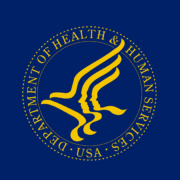 By Sam Sears, Health Policy Associate, National Consumers League
By Sam Sears, Health Policy Associate, National Consumers League
Consumers, unfortunately, accrue debt quite often throughout their lives – be it a mortgage, a car loan, credit cards, or even student loans. However, there is one type of debt that consumers have no way of knowing when it will be incurred – medical debt.
At the National Consumers League (NCL), we have been fighting to protect consumers from the unfair burdens of medical debt, both as it relates to access to care and exposing the inadequacy of the 340B Drug Pricing program. However, medical debt as a whole has a moment in the spotlight this October as the Biden Administration tackles the issue.
As I’m sure consumers have noticed, the cost of everything has gone up– groceries, rent, and even healthcare. Many families are forced to make tough decisions between putting food on the table or paying their medical bills. For some, it means putting off medical care to avoid the cost of the visit.
Medical debt now plagues more than 100 million Americans across the nation. As KFF Health News found, 1 in 7 people with debt shared that they’ve been denied access to a hospital, doctor, or other healthcare provider, and two-thirds have put off care they or a family member needs because of the cost. Shockingly, nearly 50% of those Americans have medical debt reported on their credit report, and over 40 million people owe around $88 billion, which has been sent to collections. This makes medical debt the single largest source of debt in collections, outpacing auto loans and credit cards.
The harsh reality is medical debt doesn’t just linger on a credit report; it devastates lives and can have lasting consequences. NCL has previously covered how medical debt collection practices can leave consumers in a “never-ending spiral of debt.” Hospitals across the nation are suing patients over their medical debt, and patients may not know that they must go to court or have the resources to hire a lawyer to protect themselves. As a result, creditors may seek default judgements in which a court authorizes them to garnish a patient’s wages as part of a payment plan, or place a lien on their home, cars, or other property.
Over the past few weeks, the issue of medical debt has been highlighted in the national conversation. A new proposed rule from the Department of Defense would introduce a sliding-scale discount program for civilians who receive care at a military medical treatment facility (MFT). Health and Human Services Secretary Xavier Becerra also announced that the Center for Medicare and Medicaid Services (CMS) will be adding questions about medical debt to the Medicare Current Beneficiary Survey (MCBS), an annual survey of Medicaid beneficiaries used to understand their health needs. These new questions will allow CMS to further understand the impact of medical debt on the day-to-day lives of seniors and people with disabilities.
Recently, the White House held a pivotal event hosted by the Consumer Financial Protection Bureau (CFPB), where individuals directly impacted by medical debt shared their heartbreaking stories. In tandem, the White House released a fact sheet unveiling the Administration’s new actions to address and reduce medical debt for consumers. Following these actions, the CFPB has taken several steps to protect consumers experiencing medical debt.
In his remarks, CFPB Director Rohit Chopra stated that the agency “has been laser-focused on dealing with the growing burdens of medical debt.” NCL commends CFPB and Director Chopra for their ongoing efforts to address the impact of medical debt on patients. Back in June, CFPB issued a proposed rule that would ban unpaid medical bills from being included on credit reports, and prevent the repossession of medical devices. The public comment period for this proposed rule closed on August 12. During the White House event, Director Chopra stated that CFPB is “working to finalize our credit reporting rule now.” But, with nearly 75,000 comments, NCL anticipates that it may take the agency some time to issue a final rule.
Given the complexities of medical bills, the CFPB has also been urging and requiring transparency from hospitals and debt collectors. New guidance was issued to crack down on deceptive medical billing practices, including the illegal collection of medical bills that are false, inflated, or not actually owed. CFPB has received several complaints from patients and consumers over medical debt collections, particularly for bills that the patient does not owe, were already paid by the consumer, insurance, or a government program (such as Medicare or Medicaid), or for debts that are covered by insurance, hospital assistance programs or other programs. More than ever, hospitals and healthcare providers are subcontracting medical billing and collection activities to third parties, who have legal obligations under the Fair Debt Collection Practices Act. CFPB has issued guidance to further clarify these legal obligations as they relate to medical debt and collection practices.
And let’s not forget the shameful practices of some nonprofit hospitals. As tax-exempt institutions, nonprofit hospitals are legally required to provide financial assistance to offset healthcare costs for low-income patients and consumers —yet many fall woefully short. In early October, CFPB published a comprehensive blog post drawing attention to billing and debt issues arising from nonprofit hospitals, many of which provide inadequate financial assistance. Often referred to as ‘charity care,’ federal regulations do not provide further guidance on the eligibility of patients or spending standards for hospitals. Thus, financial assistance policies are left to the hospitals themselves. While some states have intervened in an increasingly bipartisan manner, there are still too few regulations governing what financial assistance should look like or how it should be administered. NCL supports and recognizes the critical role hospitals, particularly nonprofit hospitals, play in their communities. However, the lack of transparency, as well as the predatory practices of some, need to change. NCL applauds CFPB for the spotlight they’ve put on these practices as a driver in the medical debt crisis.
CFPB has also taken steps to remove all medical collections under $500. This last step went into effect on April 11, 2023, and with this change, it’s estimated that roughly half of those with medical debt on their reports will have it removed from their credit history. If you find a medical collection under $500, a paid medical collection, a collection less than a year old, or errors on your report, you can dispute that information with the credit reporting company. One of the first steps you can take is to check your credit reports for any outstanding medical bills.
NCL stands in strong support of the efforts of the CFPB and the Biden Administration as they work to safeguard consumers and bring transparency to the healthcare and credit reporting systems. NCL shares CFPB’s concerns regarding how consumers accrue these inaccurate, undue bills in the first place. The Biden-Harris Administration continues to prioritize consumers’ access to healthcare and a commitment to protecting vulnerable populations from the unfair consequences that arise from an illness or medical emergency. NCL applauds Director Chopra, the Biden-Harris Administration, and federal agencies for their leadership in addressing the burden of medical debt.
We look forward to the CFPB’s final ruling on medical debt and credit reporting, which could be a game-changer for millions of Americans.
To learn more about your rights, and actions you can take, if you have medical debt on your credit report or need to dispute a medical bill, visit CFPB.
###
About the National Consumers League (NCL)
The National Consumers League, founded in 1899, is America’s pioneer consumer organization. Our mission is to protect and promote social and economic justice for consumers and workers in the United States and abroad. For more information, visit nclnet.org.
 By Sam Sears, Health Policy Associate, National Consumers League
By Sam Sears, Health Policy Associate, National Consumers League




 By Nancy Glick, Director of Food and Nutrition Policy
By Nancy Glick, Director of Food and Nutrition Policy












